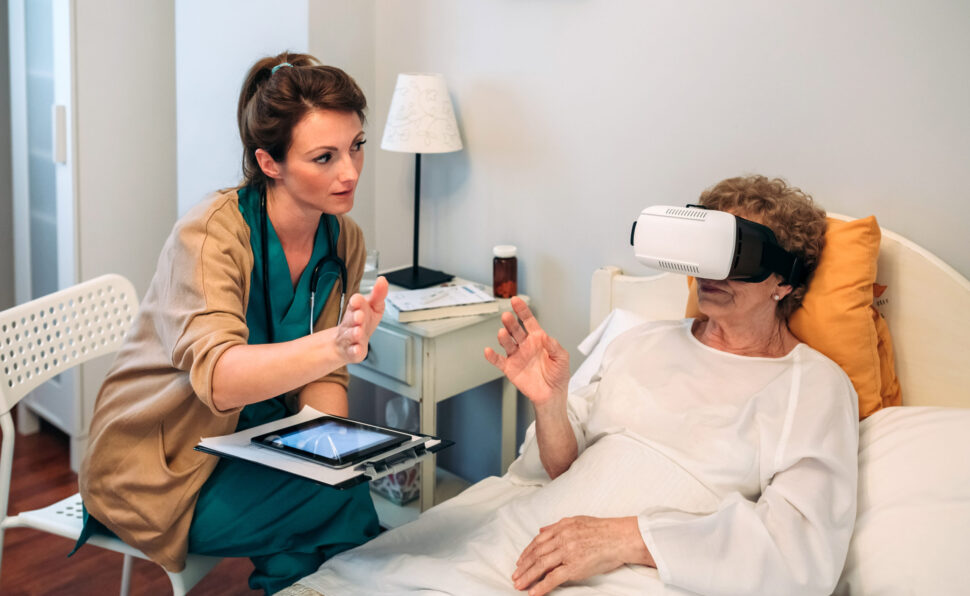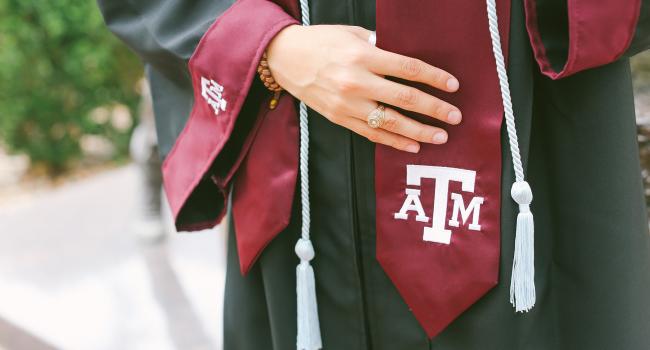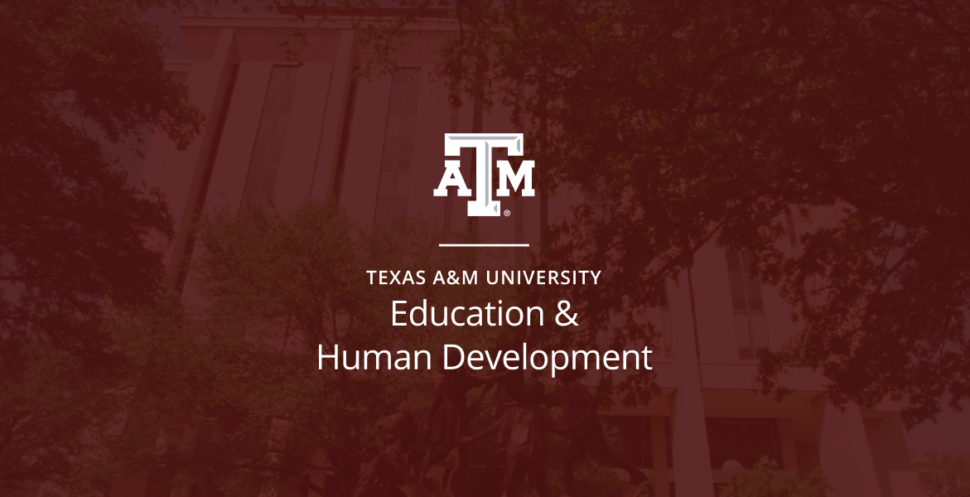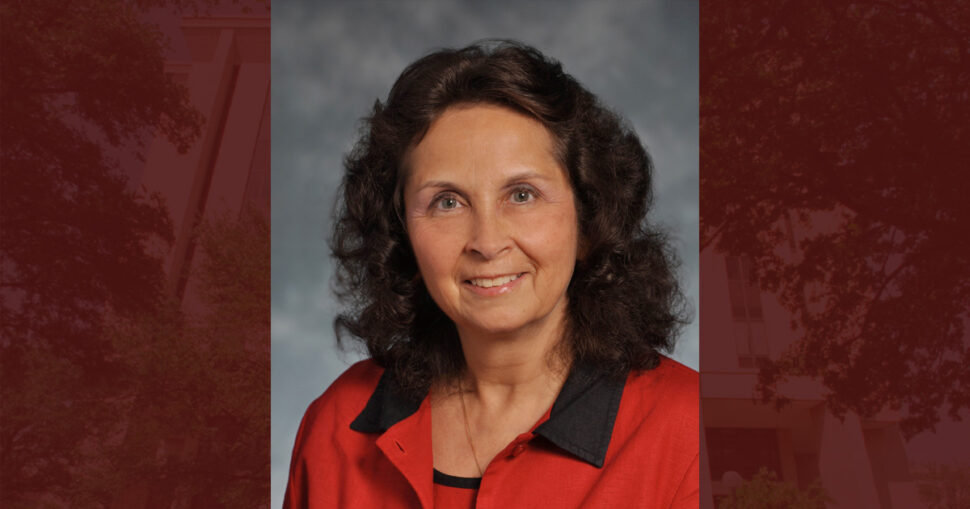-

What are STEM words and their multiple meanings?
-Dr. Michelle Kwok, clinical assistant professor in the Department of Teaching, Learning and Culture, sought to find the key processes in reaching shared meaning in STEM contexts.
2 -

A teacher’s knowledge and the impact on student achievement
-Research shows a number of factors can influence a student’s literacy development including both the home and school environment. However, of all factors, the most influential is the quality of instruction a student receives.
-

Virtual mentoring and coaching supports teachers during COVID-19
-Dr. Beverly Irby, director of the Education Leadership Research Center, said she hopes teachers seek support and guidance through virtual mentoring and coaching.
-

Silent Sacrifice: Military-Connected Kids
-Military life demands sacrifice from those who choose to serve. It also demands sacrifice from the nearly 1 million military-connected children who did not choose to serve, but proudly support their parents.
-

Improving stroke patient rehabilitation with augmented reality
-Dr. John Buchanan in the Department of Health and Kinesiology found that virtual training, like virtual and augmented reality, can support the rehabilitation processes after stroke and certain types of traumatic brain injuries.
-

Getting back to education
-Future teachers will once again graduate from Texas A&M with an education degree beginning in Fall 2021.
-

aggieTERM keeps Aggie teachers in the classroom
-In the last week of September, faculty brought in more than $23 million in grants to support various research projects across the college.
-

Faculty bring in $23M+ in grants to end September
-In the last week of September, faculty brought in more than $23 million in grants to support various research projects across the college.
-

Audio feedback in literacy intervention
-Asynchronous audio feedback is spoken feedback that is recorded. In McKeown’s research, the feedback is systematic, specific to a given writing genre and encourages teachers to recognize positives as well as areas of growth.
-

Aggie Homework Helpline launches for P-12 students
-The goal is to connect Texas families and school district partners with Aggie tutors who are committed to improving learning outcomes for P-12 students.
-

How to keep students physically active online or in-person
-September is National Childhood Obesity Awareness Month. Dr. Hildi Nicksic, health education expert, said childhood obesity is an ongoing problem that has not been caused by the COVID-19 pandemic, but exacerbated by circumstances surrounding it.
-

How is COVID-19 impacting education?
-COVID-19 is changing the face of education. Educators and students across the country are working to accommodate to socially distanced and virtual school while also supporting their student’s fears and concerns.
-

Dr. Cynthia Riccio retires after 23 years
-After 23 years in the Department of Educational Psychology, Dr. Cynthia Riccio is retiring.
-

Martha Muckleroy retires after 26 years with Texas A&M
-Martha Muckleroy, director of Camp Adventure and instructional professor in the Physical Education Activity Program, retired after 26 years at Texas A&M on Aug. 31. She hopes to leave behind a legacy of cultivated relationships and instilling a love for lifetime fitness among her students and campers.
-

A passion for mentoring underrepresented minority students
-As a young, African American woman pursuing her education at a predominantly white institution, Dr. Rhonda Fowler did not see many people that looked like her. She credits her several mentors with pushing and encouraging her to succeed in this environment.
-

Dr. Susan Bloomfield retires after 27 years
-Dr. Susan Bloomfield, professor and associate dean for research, is retiring this summer after 27 years at Texas A&M.
-

Remembering Dr. Michael Duffy
-Dr. Michael Duffy, professor emeritus in the Department of Educational Psychology, passed away on May 10, surrounded by his family at home.
-

3 faculty named AFS Award recipients
-Three faculty in the College of Education and Human Development are honored as 2020 Distinguished Achievement Award recipients from the Association of Former Students, one of the university’s highest professional honors.
-

CEHD faculty develop online video resources for parents
-Dr. Kay Wijekumar, professor and director of the Center for Urban School Partnerships in the Department of Teaching, Learning and Culture, established a series of online videos for students.
-

Best practices for online teaching amid COVID-19
-With minimal notice, face-to-face classes were forced to move to online formats in schools and universities across the country due to COVID-19. Online education experts Dr. Christine Mark and Dr. Jere Liu offer best practices and tips for instructors to make their online courses more successful.
-

Education Abroad plans halted by COVID-19
-Dr. Monica Vasquez Neshyba, clinical assistant professor in TLAC, spent the first part of this semester working with her students on an Education Abroad trip to Italy.
-

Q&A: Integrating physical activity into distance education
-In the wake of the coronavirus pandemic, online lessons and homeschooling are the new normal in education. How does physical activity fit into this new mode of learning?
-

The field of Special Education’s struggles amid a pandemic
-School districts are trying to identify ways to support children with disabilities outside of the classroom.
Feature
Education and Human Development > Feature
Can't find what you are looking for?
Contact CEHD
